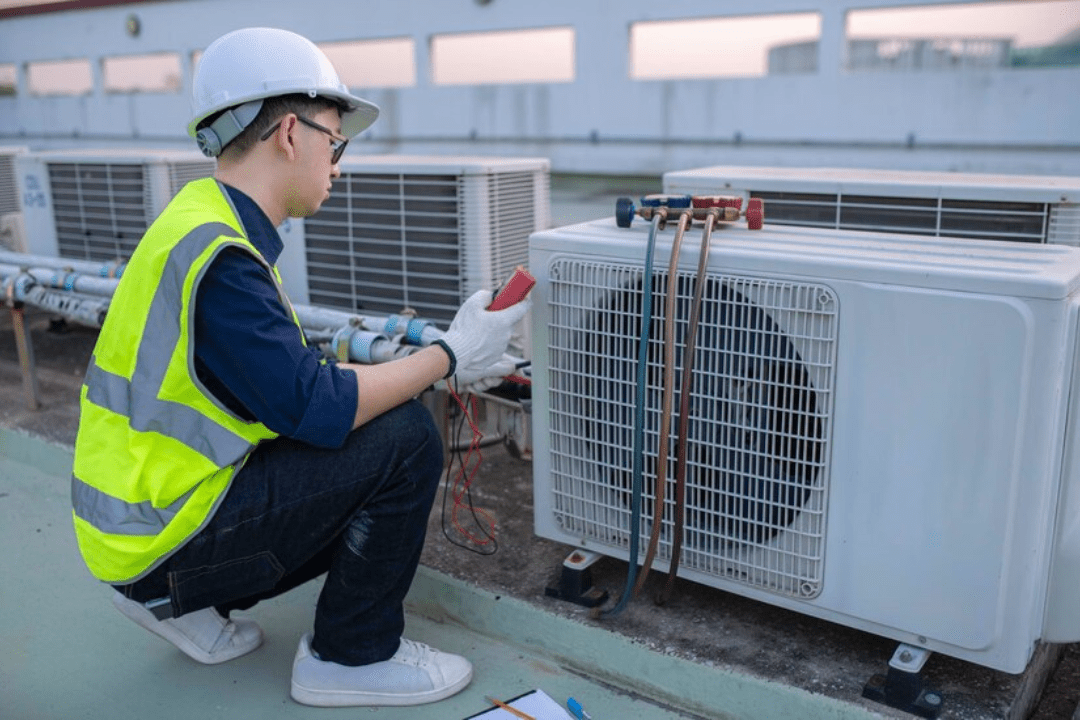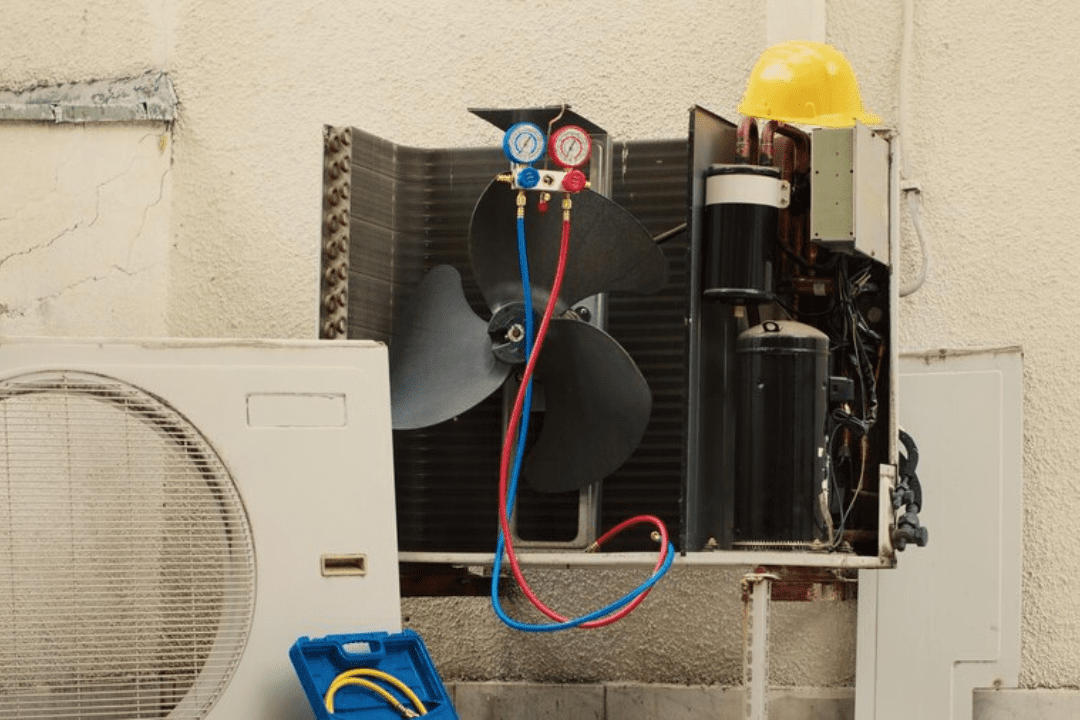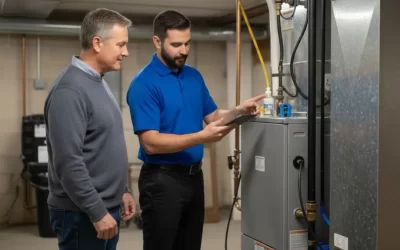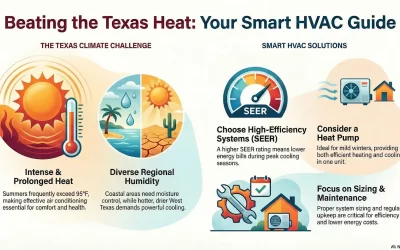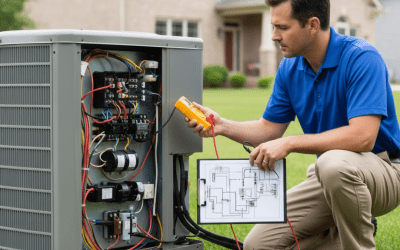When summer arrives with scorching heat waves, every establishment, including residential and commercial, depends on air conditioning to stay comfortable indoors. Though the purpose is the same, the AC systems in different settings, primarily residential and commercial, differ in many aspects.
Commercial air conditioning systems are designed to handle the cooling needs of large spaces, while residential air conditioning systems are typically simpler and smaller.
Understanding the technical differences between these two types of systems is crucial for effective maintenance and problem-solving. Let’s understand the commercial vs. residential air conditioning, the unique challenges each system faces, and provide insights into preventing and addressing common issues.
Key Differences Between Commercial and Residential Air Conditioning Systems
Size and Capacity
One of the core differences between the two is system size. Commercial systems are capable of handling cooling needs for spaces with high occupancy levels such as office buildings, shopping centers, and industrial facilities.
In contrast, residential AC systems are intended for individual homes or apartments, these systems have lower cooling capacities, sufficient for smaller spaces with fewer occupants.
Complexity
Since a significant space has to be cooled down, large-scale systems feature complex configurations, including multiple units, advanced zoning capabilities, and integration with building management systems. They often include sophisticated controls for managing temperature and air quality across different zones.
However, residential systems are typically simpler, with fewer components and basic controls. They usually consist of a single unit or a small number of units with straightforward thermostat settings.
Ventilation Requirements
Establishing a cooling system that offers effective ventilation while adhering to stricter regulatory standards in a commercial setting is vital due to machinery, computer systems, and greater occupancy levels. These systems often include advanced air filtration and ventilation mechanisms to ensure indoor air quality.
On the other hand, homes also need ventilation features, but due to less stringent requirements, basic air filtration and ventilation are enough to maintain air quality in smaller, less densely populated spaces.
Installation and Maintenance
Installation and maintenance are more complex in business-grade systems and require specialized expertise. Regular professional maintenance is essential to ensure efficiency and longevity. Besides, due to their complexity and size, these systems often have higher maintenance costs.
Residential AC systems are easier and quicker to install, often by general HVAC technicians. Maintenance is also straightforward, involving regular filter changes and periodic checks by professionals. Maintenance costs are comparatively lower.
Load Variability
It is mandatory for industrial systems to be powerful enough to handle significant load variability due to fluctuating occupancy and usage patterns. They are designed to adapt to these changes, maintaining consistent temperatures and air quality.
As the number of occupants and usage patterns are more stable in houses, they would experience less load variability. These systems are designed to provide consistent cooling for the relatively predictable demands of a home.
Energy Efficiency
Commercial buildings often incorporate energy-saving technologies and strategies, such as variable refrigerant flow (VRF) systems, to reduce operational costs.
Residential systems are more focused on providing adequate cooling with good energy efficiency for individual homes. They may include features like programmable thermostats and high SEER (Seasonal Energy Efficiency Ratio) ratings to minimize energy use.
Common Technical Problems & Maintenance Differences Between Commercial and Residential Air Conditioning Systems
Common Technical Problem
Common technical problems faced by both commercial and residential air conditioning systems.
- Leaking refrigerant reduces the system’s efficiency and cooling capacity. It can also cause the compressor to overheat and fail.
- Dirty or clogged filters restrict airflow, reducing system efficiency and leading to poor indoor air quality.
- Faulty thermostats can cause incorrect temperature readings, leading to inefficient cooling and discomfort.
- The compressor can fail due to issues like refrigerant leaks, electrical problems, or excessive wear and tear.
- Faulty wiring, blown fuses, or tripped breakers can disrupt system operation.
- Malfunctioning sensors can lead to improper temperature regulation and inefficient system performance.
- Blocked or leaky ducts, dirty coils, or malfunctioning fans can restrict airflow, reducing system efficiency.
- Clogged drain lines or malfunctioning condensate pumps can cause water to leak from the system.
- The system turns on and off frequently, reducing efficiency and increasing wear on components. This can be caused by an oversized unit, thermostat issues, or airflow restrictions.
Different settings require different solutions. Our experts know the distinct needs of both.
Maintenance Differences
Key differences between commercial and residential air conditioning system maintenance:
Frequency: Residential AC systems typically require essential maintenance once or twice a year. This includes tasks like replacing air filters and scheduling a professional cleaning to maintain efficiency. Commercial systems, on the other hand, demand a more rigorous schedule. Regular inspections (often quarterly) and cleaning are crucial, along with preventive maintenance, to identify and address potential issues before they snowball into major problems.
DIY vs. Pro: Many homeowners can comfortably handle basic residential AC maintenance like filter changes. However, for complex tasks or troubleshooting problems, hiring a professional HVAC technician is recommended. Commercial systems, due to their complicated nature, almost always require professional servicing. Technicians with specialized knowledge and tools are essential to ensure optimal performance and prevent costly breakdowns.
Component Focus: Residential maintenance focuses on keeping the condenser unit and air handler clean and functioning properly. Commercial systems require a more comprehensive approach. Technicians will inspect cooling towers, chillers, air handling units, ductwork, and control systems, ensuring each component contributes to efficient cooling.
Cost Comparison: The cost of maintenance reflects the complexity of the system. Residential maintenance tends to be relatively affordable, with costs primarily associated with filter replacements and occasional professional cleanings. Commercial maintenance carries a higher price tag. The frequent inspections, specialized labor, and potential need for parts replacements can make it a significant expense. However, proactive maintenance can prevent costly emergencies and extend the lifespan of the system, often resulting in long-term savings.
Conclusion
Now you can more clearly understand how commercial and residential air conditioning systems differ from each other. They have their own different features and maintenance requirements; thus, it’s essential to manage each according to their dedicated requirements.
If you seek professional installation or ac repair in New Braunfels, consult Classic Services Air Conditioning and Heating for seamless services!

